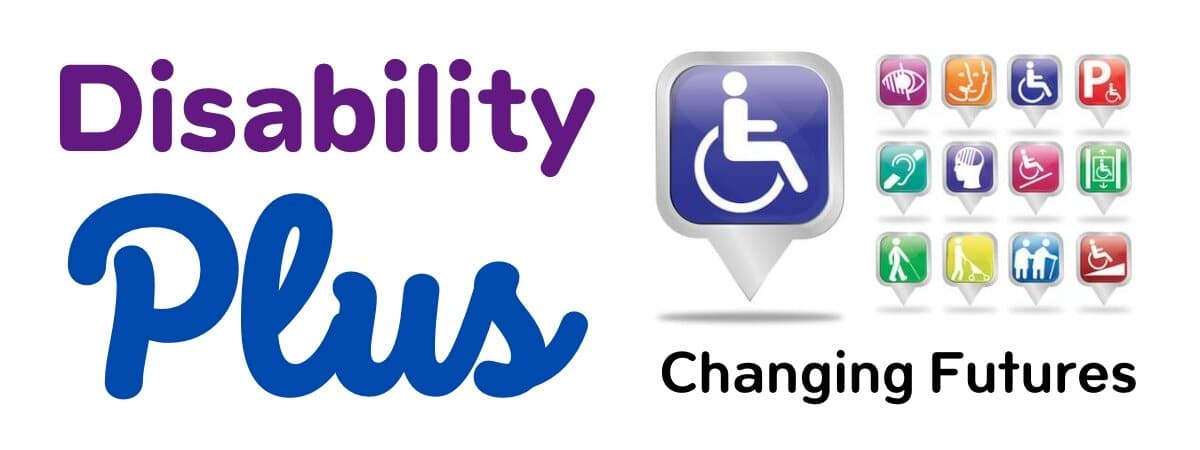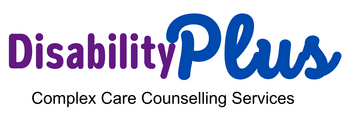Real Stories, Real Lives, Real Impact, Lived Experience Matters
Specialist Mental Health Counselling Services for Deaf and Hard of Hearing People
Self-Paid Referral Form & Pricing
Free Funding Referral Form
Enquiries & Questions
Professional Referrals
Explore all other Services
"This service is for deaf and hard of hearing people who use spoken English. For counselling in BSL, please click below"
Lived Experience Matters
Mental Health Counselling That Understands Hearing Loss
Finding the right mental health support can be difficult. It’s even harder when you’re deaf or hard of hearing and don’t use sign language. Explaining challenges like listening fatigue or the strain of lip-reading to a hearing therapist can be exhausting. We believe you shouldn’t have to spend your sessions explaining your hearing loss.
You deserve to feel understood from the very start.
Our deaf mental health counselling service was created for this reason. We are a team of qualified psychotherapists who are also deaf or come from a deaf background. To ensure our communication is always clear and comfortable, we speak orally and are experienced lip-readers. We pay close attention to visual cues and can use live captions during sessions. This removes the usual communication barriers, allowing you to relax and focus on your wellbeing, supported by therapists who just get it.
Why Choose Us?
Deaf Mental Health Counselling (Oral) | UK Specialist Therapists
Feel Understood From Your First Session
From the moment your first session begins, you’ll find a safe space where you are understood. There’s no need to explain the day-to-day reality of your hearing loss, because your counsellor shares that lived experience.
This immediate connection, built on genuine empathy, means you can feel seen and heard from the very start. Our deaf mental health counselling sessions use clear spoken communication and skilled lip-reading, removing the usual strain and anxiety. This allows you to relax and put all your energy into what truly matters: your own wellbeing.
More Than Just Tired: The Impact of Listening Fatigue
If you are orally deaf or hard of hearing, you know the constant, invisible effort it takes to get through the day. It’s the intense focus needed to lip-read in a meeting, the strain of following a conversation in a noisy room, or the complete exhaustion after a simple social event.
This is called listening fatigue. It’s a heavy mental load that hearing people can’t fully grasp. Our counsellors have this lived experience, so they know it’s more than just feeling tired. In our deaf mental health counselling, we recognise the real impact this has on your wellbeing.
Practical Therapies to Help You Move Forward
Our deaf mental health counselling uses proven therapies to equip you with practical skills.
One of our main approaches is Acceptance and Commitment Therapy (ACT). This helps you change how you relate to anxiety and painful thoughts, reducing their hold on you. It allows you to put your energy into the things that truly matter to you.
For distressing past events, such as trauma or abuse, we use Eye Movement Desensitisation and Reprocessing (EMDR) to help your brain process difficult memories so you can heal and move forward.
Funding Your Therapy
We want to make our specialist deaf mental health counselling accessible to everyone. We offer several ways to fund your sessions.
Pay for yourself: To get started, you can pay for sessions yourself. Your first session is £50, followed by blocks of three for £180.
Funded options: Our team can assist you in applying for funding through the NHS or the government’s Access to Work scheme, starting with a complimentary assessment to support your application. We also accept referrals from most Employee Assistance Programmes (EAPs) and other professional bodies.
Funding Your Counselling
We believe that cost should not be a barrier to getting the support you deserve. There are several ways to fund your therapy journey, and we are here to help you understand the options available.
1. Self-Funding
Self-Funding
The most straightforward way to begin counselling is to fund it yourself.
This offers the most flexibility, allowing you to start your sessions without delay.
Session fees
Session 1: £50 & £180 for every three sessions thereafter.
4. NHS and GP Referrals
Funding for your therapy through the NHS may be available in most areas of England and Wales. You can either self-refer by using the self-referal form, contact us directly, or ask your GP to refer you.
While the NHS provides its own mental health services, it often cannot offer therapy with a Deaf counsellor.
If your local NHS service cannot meet your linguistic and cultural needs, they may be able to fund your therapy with us through an Individual Funding Request (IFR).
The process may vary depending on your location; please contact us to learn more.
2. Access to Work
If the challenges you’re facing are affecting your job, you may be eligible for full funding through the government’s Access to Work scheme.
This programme is designed to provide the support you need to thrive in your career, and this can include specialist therapy, such as Deaf Mental Health Counselling.
We can provide you with information to help you with your application.
5. Support from Charities
Many national and local charities that support the Deaf community may offer grants or funding to cover the cost of counselling sessions. It can be worthwhile researching organisations to see if you are eligible for their support.
3. Employer
Your employer could fund your Counselling sessions through their Employee Assistance Programme (EAP).
Many companies offer this confidential support service to help their employees with their well-being.
You have the right to request a specialist service that meets your unique cultural and linguistic needs. To begin, you will need to speak with your manager or HR department and ask them to refer you to us through their EAP provider.
We are an approved provider and already work with many EAP companies. We are happy to help you and your employer with this process.

Contact us if you cannot find what you are looking for

What to Expect When You Get in Touch
We know that reaching out for support can feel like the most challenging part. That’s why our process is designed to be clear and supportive from the very beginning. When you first contact us, you’ll receive a warm and accessible response. We will listen to your enquiry and explain the best first step for you, whether you’re looking to start straight away or apply for funding.
Beginning Your Therapy
Whichever path you take, your first full therapy session will focus on building a strong, trusting relationship. You’ll have the space to share your story at your own pace, without any pressure or judgement. Your counsellor will listen with genuine empathy, drawing on their own lived experience as an oral deaf or hard of hearing person to provide a level of understanding you may not have found elsewhere.
Your First Step: Two Clear Pathways
We offer two distinct routes to begin your therapy, depending on your circumstances:
1. For Self-Paying Clients: If you wish to start immediately, your first session is a full therapeutic session at a reduced rate of £50. This is your opportunity to begin the process, meet your counsellor, and see if you feel a genuine connection, all without the need for an initial assessment.
2. For NHS or Access to Work Funding: If you plan to use NHS or Access to Work funding, your journey begins with a free assessment session. This is not a therapy session, but a dedicated meeting where we gather the necessary information to support your funding application, making the process as smooth as possible for you.
A Collaborative Journey
In the sessions that follow, you’re always in the driver’s seat. Our partnership is central to how we work; you are the expert on your own life. Together, we will gently explore the challenges you’re facing and collaboratively identify your goals for therapy. This ensures you always feel in control of your journey towards healing and wellbeing.

The Invisible Effort of Listening
If you’re orally deaf or hard of hearing, you know that navigating the world requires a constant, invisible effort. It’s the intense concentration of lip-reading through a meeting, the strain of separating voices in a noisy room, or the sheer mental exhaustion after a “simple” social event. This is listening fatigue, and it’s a profound mental burden a hearing person can’t fully grasp. Because our counsellors have this lived experience, they know this isn’t just about feeling tired; it’s a significant factor affecting your mental health.
The Pain of Being on the Outside
Social events can be incredibly isolating, even when surrounded by people. It’s the pain of seeing everyone laugh at a joke you missed or being on the edge of a family conversation, unable to keep up with it. A hearing therapist might see this as a simple communication issue. A counsellor who has lived it knows it’s a cumulative experience of exclusion that can profoundly impact your self-worth. We recognise this isolation as a core environmental and emotional challenge, not just a symptom.
The Daily Toll of Frustration and Anxiety
Beyond fatigue and isolation are the daily frustrations and a persistent, low-level anxiety. It’s the impatience you face when you ask someone to repeat themselves, or the sting of being dismissed with a casual “I’ll tell you later.” This is compounded by the background stress of not hearing important sounds, such as a smoke alarm or approaching traffic. A counsellor with lived experience doesn’t need these moments explained to them. They’ve felt it too, which provides an immediate sense of validation.

Why Our Lived Experience is the Solution
This is why our shared experience isn’t just an added benefit; it’s the entire foundation of our therapy. When you don’t have to spend your first sessions educating your therapist on the fundamental realities of your life, you can start healing immediately. This shared understanding creates a powerful connection built on genuine empathy, offering a space where you are not just listened to, but are deeply and instinctively understood from the very start.

More Than Just Talking: Our Approach
While the shared experience of our counsellors is the foundation of our service, our therapeutic work is active, structured, and designed to create lasting change. We go beyond traditional talk therapy by using specific, evidence-based methods to help you build resilience and process difficult experiences. Our approach is centred on two powerful frameworks: Acceptance and Commitment Therapy (ACT) and Eye Movement Desensitisation and Reprocessing (EMDR).
Managing Daily Stress with ACT
Living in a hearing world comes with unique daily stressors. ACT is a powerful therapy that helps you manage the anxiety and frustration that can arise from listening fatigue or social isolation. It’s not about getting rid of these difficult feelings, but about changing your relationship with them so they no longer control your life. We’ll give you the skills to “unhook” from painful thoughts and focus your energy on building a life that is truly meaningful to you.
Healing from the Past with EMDR
Some past experiences can leave a lasting impact. EMDR is a highly effective therapy designed to help your brain heal from distressing or traumatic memories. This could include experiences of bullying related to your hearing, medical trauma, or impactful moments of discrimination (audism). EMDR helps your brain “re-file” these memories so they lose their intense emotional charge, allowing you to heal and move forward with peace.
A Complete Path to Wellbeing
By combining these therapies, we offer a comprehensive path to wellness. ACT gives you the forward-looking skills to navigate the present and build a better future, while EMDR helps you heal the past wounds that may be holding you back. This integrated approach equips you not just to cope, but to build a resilient and thriving life with a stronger sense of confidence.

Accessible Funding & Payment Options
We believe the cost of therapy shouldn’t be a barrier to receiving the specialist support you deserve. To ensure our service is as accessible as possible, we have several clear pathways for funding your sessions. Our team is here to help you find the one that best suits your circumstances.
1. Self-Paid Pathway
For those who wish to begin their therapeutic journey without delay, our self-paid pathway is the most direct route. This option gives you the flexibility to start immediately, bypassing any waiting lists.
-
Your first session is at a reduced rate of £50.
-
Ongoing sessions are arranged in blocks of three for £180.
2. Government Funding Support (NHS & Access to Work)
We have extensive experience helping clients secure government funding. This process begins with a free assessment session, which allows us to support your application.
-
NHS Funding: Available to Deaf individuals across most of England and Wales, we can guide you through every step of the NHS application process.
-
Access to Work: If you are employed, you may be eligible for support through the Access to Work scheme. They can fund 12 sessions of coaching (which are very similar to counselling sessions), and we can help you with the entire application.
3. Employer & Organisational Funding
We are an approved provider for most major Employee Assistance Programs (EAPs) and collaborate with a diverse range of professional organisations. If your employer offers access to therapeutic support, your counselling may be fully funded. We encourage you to check your eligibility with your provider.
Please feel free to contact us confidentially to discuss which of these options best suits your needs. We are here to help.
Professional Organisations
We welcome referrals from a wide range of professional partners who share our commitment to client wellbeing. Whether you work within the public healthcare sector, manage cases for individuals needing support, represent a private healthcare organisation, or belong to a charitable organisation dedicated to improving mental health, we are ready to assist.
If you are a professional seeking counselling services for a client, we encourage you to click the button below and complete our secure online referral form. Our dedicated team is here to provide the highest standard of care.


Self-Paid Counselling
Paying for counselling privately offers several potential advantages over NHS-funded counselling:
Shorter waiting times: NHS counselling often involves waiting lists, sometimes for several months. Self-paid counselling typically offers appointments within seven working days.
Confidentiality: When self-paying, we are bound by strict ethical codes regarding privacy. Unlike NHS counselling, where your GP must be informed, private therapy ensures your sessions remain private unless legally required to disclose (e.g., risk of harm).
Session Frequency: NHS counselling often has a set number of sessions, whereas private therapy allows for more flexibility.
You can have as many sessions as you feel you need, and adjust the frequency as your needs change.
When you Self-Pay, you can typically start counselling within seven days
First Session
- Discounted Session Price for Disabled People and Carers only to make Counselling Affordable.
- One 50-Minute Session
- Video Consultation
- Start Counselling Generally within 7 Days
- No GP Reports
Three Sessions
- Three 50-minute sessions
- Video consultation
- Start Counselling Quickly
- No GP Reports
Real Stories, Real Lives, Real Impact, Lived Experience Matters
Specialist Mental Health Counselling Services for Deaf and Hard of Hearing People
Authentic support without barriers. Whether you use British Sign Language (BSL) or spoken English, we match you with a counsellor who shares your lived experience and communication needs.
Questions & Enquiries
Self-Paid Referral Form & Pricing
Free Funding Referral Form (Wales Only)
Professional Referrals
Self-Referrals for Deaf Mental Health Counselling
Select the topic below for the referral forms.
Select the Topic you would like to know more about
Therapy Without the "Lost in Translation"
Trying to explain your feelings is hard enough; trying to explain your deafness to a hearing therapist can be exhausting. Mainstream services often rely on interpreters or lack the cultural understanding you deserve.
At DisabilityPlus, we do things differently. We believe the therapeutic relationship starts with a direct connection. We remove communication barriers by matching you with a professional who understands your world because they are part of it.
Lived Experience Matters
A Counsellor Who Truly Understands You
We offer a unique tiered matching system to ensure you feel completely comfortable during your sessions.
1. For BSL Users: Deaf Counsellors Perfect for: Culturally Deaf individuals who prefer British Sign Language. Work directly with qualified Deaf professionals. Communicate freely in your first language without the presence of an interpreter. Our team understands Deaf culture and the specific challenges of navigating a hearing world.
2. For Non-Signers: Counsellors with Cochlear Implants. Perfect for: Oral deaf individuals and CI users. If you do not use sign language, we can match you with counsellors who utilise cochlear implants. They understand the fatigue of lip-reading, the nuances of assisted hearing, and the journey of living with hearing loss while communicating orally.
3. For Those with Acquired Hearing Loss: CODA & Heritage Counsellors Perfect for: Individuals losing their hearing or those who do not sign. We provide hearing counsellors who grew up with Deaf parents (CODAs) or with parents who have hearing loss. These professionals are bridge-builders; they possess a deep, innate understanding of hearing loss and deaf awareness, providing a supportive space for those who communicate verbally but need a “deaf-aware” approach.
We can help you navigate:
- Anxiety and Depression
- Isolation and Identity issues
- Tinnitus and Acquired Hearing Loss distress
- Relationship difficulties
- Trauma and PTSD
- Workplace discrimination
Contact us if you cannot find what you are looking for

Turn Daily Frustrations into Strength
Are you tired of the daily triggers? The communication barriers, the social isolation, and the constant effort of navigating a hearing world can be exhausting. Our deaf mental health counselling provides you with the tools to build genuine resilience and transform that frustration into a source of strength.
Our entire approach is built on lived experience:
Pinpoint Your Triggers. Together, we will identify the specific situations that drain your energy – from the strain of listening fatigue and lip-reading to the negative attitudes of others.
Find Genuine Understanding. Your counsellor is also deaf or hard of hearing. They don’t just sympathise with your experiences; they truly know them. This shared foundation is where real progress begins.
Build Empowering Solutions We will equip you with practical skills and strategies to confidently handle difficult situations, manage communication barriers, and build the fulfilling life you deserve.
It’s time to do more than just manage. It’s time to thrive.

Funding Options
We believe that cost should not be a barrier to getting the support you deserve. There are several ways to fund your therapy journey, and we are here to help you understand the options available.
1- Self Funding
Deaf Mental Health Counselling Self-Funding
The most straightforward way to begin counselling is to fund it yourself.
This offers the most flexibility, allowing you to start your sessions without delay.
Session fees
Session 1: £50 & £180 for every three sessions thereafter.
2. Access to Work
If the challenges you’re facing are affecting your job, you may be eligible for full funding through the government’s Access to Work scheme.
This programme is designed to provide the support you need to thrive in your career, and this can include specialist therapy, such as Deaf Mental Health Counselling.
We can provide you with information to help you with your application.
3. Employer
Your employer could fund your Counselling sessions through their Employee Assistance Programme (EAP).
Many companies offer this confidential support service to help their employees with their well-being. You have the right to request a specialist service that meets your unique cultural and linguistic needs. To begin, you will need to speak with your manager or HR department and ask them to refer you to us through their EAP provider.
We are an approved provider and already work with many EAP companies. We are happy to help you and your employer with this process.
4. NHS and GP Referrals
Funding for your therapy through the NHS may be available in most areas of England and Wales. You can either self-refer by using the self-referal form, contact us directly, or ask your GP to refer you.
While the NHS provides its own mental health services, it often cannot offer therapy with a Deaf counsellor in BSL.
If your local NHS service cannot meet your linguistic and cultural needs, they may be able to fund your therapy with us through an Individual Funding Request (IFR).
The process may vary depending on your location; please contact us to learn more.
5. Support from Charities
Many national and local charities that support the Deaf community may offer grants or funding to cover the cost of counselling sessions. It can be worthwhile researching organisations to see if you are eligible for their support.

Why Choose Our Specialist Counselling?
Experience the benefits of a service designed for orally deaf and hard-of-hearing people seeking effective mental health support in the UK.

EMDR Therapy: A Path to Healing
If you are struggling with distressing memories, anxiety, or the effects of trauma, you are not alone. EMDR (Eye Movement Desensitisation and Reprocessing) is a powerful therapy that can help, and we offer it in a way that is fully accessible to you.
An Accessible Approach to EMDR
Difficult memories can sometimes get “stuck,” causing ongoing distress. EMDR utilises gentle, guided stimulation (such as eye movements or tapping) to help your brain reprocess these memories effectively.
With a therapist who is also deaf or hard of hearing, the process is straightforward and comfortable. Because they understand your world, they ensure the therapy is fully accessible. This allows you to reduce the emotional hold of difficult memories, helping you to heal and move forward.
EMDR Can Help You With:
-
Trauma and PTSD
-
Anxiety, phobias, and panic attacks
-
Depression
-
Complex grief
-
Coping with distressing life events
Your therapist will guide you through EMDR with a deep, personal understanding of the challenges of hearing loss, creating a truly safe environment for your healing.
Contact us to find out if EMDR is the right path for you.

Usher Syndrome: Finding Support When It's Rare and Misunderstood
Living with Usher syndrome is challenging. We understand the unique struggles of navigating hearing and vision loss in a hearing and sight-centric world.
Our Support:
Understanding: We grasp Usher syndrome’s emotional, social, and practical impacts.
Specialised Psychotherapy: Our therapist provides a safe space to explore your experiences.
Coping Strategies: Learn to manage anxiety, grief, and build resilience.
Advocacy: Gain confidence in communicating your needs.
You’re not alone. We’re here to help you thrive.
Hearing Loss Counselling & Psychotherapy
Hearing Loss Counselling & psychotherapy can provide numerous benefits to individuals with deafness and their families.
There are many ways we can support & help you navigate life’s challenges.
Our Therapists focus on you as a whole person – your background, current challenges, and what brings you to wellness. We are a warm, professional counselling service dedicated to offering you the best possible experience for your unique needs, delivered via evidence-based counselling or longer-term psychotherapy.
We pride ourselves on providing safe and compassionate hearing loss counselling where all individuals, regardless of cultural, gender or sexual identity can receive equitable mental health services and support.
So, if you’re struggling in any way right now, please do get in touch with us. Talking to someone outside your family or circle of friends may help you better understand your feelings and manage them more effectively.

⇒ Specialist Acreditated & Registered Counsellors & Psychotherapists.
⇒ You can choose a Counsellor who has Hearing Loss.
⇒ Support for Cochlear Implant users with Oral deaf counsellors who also have CI.
⇒ Our Counselling comes from Lived Experiences, not a Text Book or Training Course.
⇒ Free Funding Applications for people in most of Wales & Scotland & who are aged 18 & over.
⇒ Heavily subsidised self-paying plans with no waiting list for people 12 & over.
⇒ We can support people who use assistive communication devices.
⇒ Video counselling with captions to ensure you can connect with specialists wherever you live.
Enquiries
Self-Pay
Free Funding
Questions?
How do we support you?
Online Sessions – we offer video sessions; why?
Few counsellors specialise in supporting people with hearing loss. We can help you wherever you live by providing video sessions.
What to expect? – your counsellor will understand the issues you may be facing; each person is different, but common themes are discussed in therapy.
Therapy – we usually offer counselling that supports resolutions of your current issues and future planning. Some people prefer a longer, more profound form of psychotherapy.
We support both modes of counselling.
When can I start counselling? – if you pay for sessions, sessions generally start within a fortnight.
If you wanted NHS funding, we would make an application following a free assessment session.
No NHS funding application is guaranteed to be successful, and the timeframe is normally between 8 and 12 weeks.
We pride ourselves on providing safe and compassionate hearing loss counselling where all individuals, regardless of cultural, gender or sexual identity, can receive equitable mental health services and support.
Counselling?
Our Counselling & Psychotherapies start from the baseline & contributing factors of living with hearing loss creating the issues you may be facing.
We know that most people we see do not have mental health conditions, they have emotional stressors & issues subjected to accessibility, discrimination, limited opportunities, physical, neurological conditions & relationships in general.
These are key issues many disabled people face on a daily basis.
Depression: Hearing loss can lead to feelings of isolation, social withdrawal, and reduced quality of life, all of which can contribute to depression.
Anxiety: People with hearing loss may struggle to understand what is being said in social situations, which can lead to anxiety and feelings of self-consciousness.
Social isolation: Communication difficulties can make it hard for people with hearing loss to participate in social activities and connect with others, leading to social isolation.
Communication breakdown: Misunderstandings and communication breakdowns can lead to frustration, which can cause tension and conflict in relationships.
Cognitive decline: Some research has suggested that hearing loss may be associated with cognitive decline and an increased risk of dementia.
Fatigue: Struggling to hear can be mentally exhausting, particularly if the person has to concentrate more to follow conversations or if they use assistive devices for prolonged periods.
We take pride in tailoring individual support for adults with hearing loss. We ensure their needs are met by delivering a flexible, personalised service.
Our Counsellors & Psychotherapists are driven to support their own community; this is not a job for them; it’s their passion. All our counsellors are registered & qualified to deliver exceptional therapies.
The impact of hearing loss on all different levels for all different people is complex. We understand all these issues and many more because our counsellors have hearing loss.
So, if you’re struggling in any way right now, please do get in touch with us. Talking to someone outside your family or circle of friends may help you better understand your feelings and manage them more effectively.
Support?
We support people, not with the labels of depression or anxiety, our counselling is helping clients with life’s difficulties that can be the platform for their mental health issues.
We help with:
♣ Coping with the rollercoaster of society’s challenges & perceptions
♣ Exploring your feelings & thoughts
♣ Understanding of how difficulties may have developed
♣ Coping with different emotions
♣ Concerns about memory and changes in thinking
♣ Dealing with distress and trauma
♣ Concerns about relationships
♣ Adjusting to the reality of living with hearing loss
♣ Setting realistic aspirations for the future
Mental health?
Living with hearing loss can have a significant impact on mental health. Here are some ways in which hearing loss can affect mental health.
In our counselling we often find that people with hearing loss have issues with:
Isolation and loneliness: Hearing loss can make it difficult to communicate with others, which can lead to social isolation and loneliness. Strategies to address isolation include joining social groups or clubs, participating in online communities, and seeking out opportunities to connect with others.
Depression and anxiety: The experience of hearing loss can be overwhelming and stressful, which can lead to depression and anxiety. Strategies to address depression and anxiety include seeking out professional counselling, engaging in mindfulness or relaxation techniques, and focusing on self-care.
Frustration and anger: Communication difficulties can lead to frustration and anger, particularly in social situations. Strategies to address frustration and anger include practising active listening, advocating for oneself, and finding alternative communication methods, such as writing or text messaging.
Low self-esteem: Hearing loss can be stigmatized and may lead to feelings of low self-esteem. Strategies to address low self-esteem include focusing on strengths and accomplishments, seeking out positive affirmations, and engaging in self-compassion exercises.
It’s important to note that not everyone with hearing loss will experience mental health conditions, and those who do may experience different combinations of symptoms.
Self-paying?
We offer privately-paid services from age 14.
Private pay clients are able to choose the focus, duration, and frequency of therapy.
Clients are even allowed to choose the length of sessions. Research shows that clients who have to pay something for their treatment have more positive outcomes than those who receive free treatment.
Individuals can start their Hearing Loss Counselling almost immediately.
There are no waiting lists or reports being sent to GPs. It’s Confidential.
Pricing
For the general public, we heavily discounted our session fees. This enables them to access counselling easily at an affordable price.
Session Fees for 50 minutes:
♣ Initial Session £50
♣ Pay as you go £70
♣ Saver3 £180 (3 Sessions)
For those who use assistive communication devices, session times move from 50 to 70 minutes with a session fee of £90 & saver pack of 3 sessions at £220
Some people may find that self-paid is just out of reach if this is the case let us know and we can generally help with a payment plan.
Funding?
As a specialist service with a wealth of experience, we can support organisations and private people with excellent Hearing Loss Counselling and Psychotherapies.
Services for
♣ Individuals
♣ Couples
♣ Care-Givers
♣ Family Members
♣ Friends
Professional Organisations
♣ National Health Services
♣ Mental Health Providers
♣ GPs
♣ Universities & Schools
♣ Solicitors & Courts
♣ Insurance Companies
♣ Businesses

Our Specialist Counselling Services
If your Disability is not listed below, please contact us to see if we can support you.


